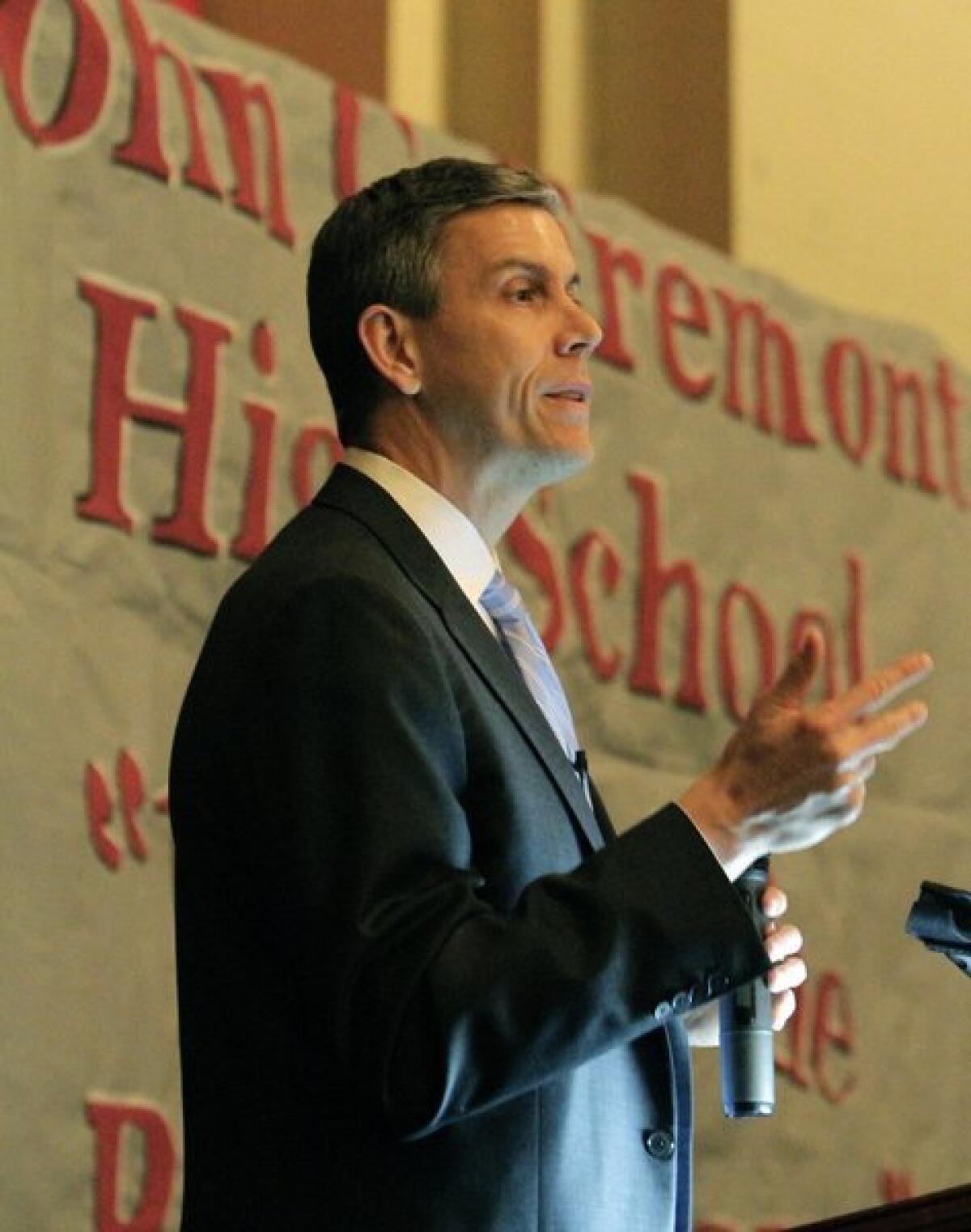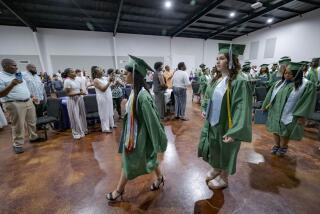California won’t get relief from No Child Left Behind law

U.S. Education Secretary Arne Duncan during a 2011 visit to a Los Angeles campus. He rejected California’s request for relief from sanctions affecting schools.
The federal government made it clear again Monday that California will get no relief from education mandates that officials across the country consider a burden.
The point was made as the U.S. Department of Education announced that it granted three more states waivers to No Child Left Behind, the bipartisan legislation that is closely associated with the administration of George W. Bush.
No Child Left Behind required virtually every U.S. student to be academically proficient by 2014. Schools unable to progress steadily toward that goal have been labeled as “failing.” These schools are subject to various sanctions over time, including being shut down. Some states responded by lowering academic standards so more students would meet them, but still fell short.
In the news release, California is listed -- with Montana and Nebraska -- as one of three states “that have not yet requested flexibility.” Two others -- North Dakota and Vermont -- withdrew their applications, according to the department. Even deep Republican Texas, often the bane of the Democratic Obama administration, has submitted an application. To date, 34 states have received waivers, as have the District of Columbia, the Bureau of Indian Affairs and Puerto Rico.
As far as California officials are concerned, the state did, in fact, seek a waiver, but without agreeing to follow the established ground rules. The Obama administration had offered relief in exchange for adopting favored policies, such as linking teacher evaluations to student standardized-test scores.
California balked at this requirement, seeking a waiver without linking test scores to evaluations.
Federal officials denied California’s waiver in a Jan. 4 letter. In it, Secretary of Education Arne Duncan first listed the characteristics of a successful application, then asserted that “because California’s request did not indicate that California intended to meet that high bar, I am declining to exercise my authority to approve your waiver request.”
Under federal rules, more than 6,000 California schools have failed to keep pace with improvement targets. In many cases, these schools are making gains, sometimes rapidly. Besides enduring a stigma, these schools also must set aside as much as 20% of federal funds for tutoring services from outside vendors and must offer to transport students to “non-failing” schools. The outside tutoring has been inconsistent and frequently ineffective, according to some experts.
State officials said they have, for now, abandoned attempts to win a waiver, according to a joint statement by state Board of Education president Michael W. Kirst and state Supt. of Public Instruction Tom Torlakson.
“While California’s efforts to improve its education system continue to move forward ... the standards for obtaining a federal waiver remain difficult to meet for a state committed to local flexibility and decision-making,” they said.
California and the federal government have tangled over similar ideological divides before. The state unsuccessfully vied for a high-profile federal Race to the Top grant. The state also has resisted federal policies over concern that they could result in sharply increased costs.
Nine California school districts are pursuing their own waiver application. The local systems involved are L.A. Unified, Long Beach Unified and Santa Ana Unified.
ALSO:
17 bodies removed from California funeral home
Sacramento-area girl killed when men walk up to front door and shoot
Muted outcry over Kern County beating: ‘We’ve gotten used to a lot here’
Twitter: @howardblume | howard.blume@latimes.com
More to Read
Start your day right
Sign up for Essential California for news, features and recommendations from the L.A. Times and beyond in your inbox six days a week.
You may occasionally receive promotional content from the Los Angeles Times.







